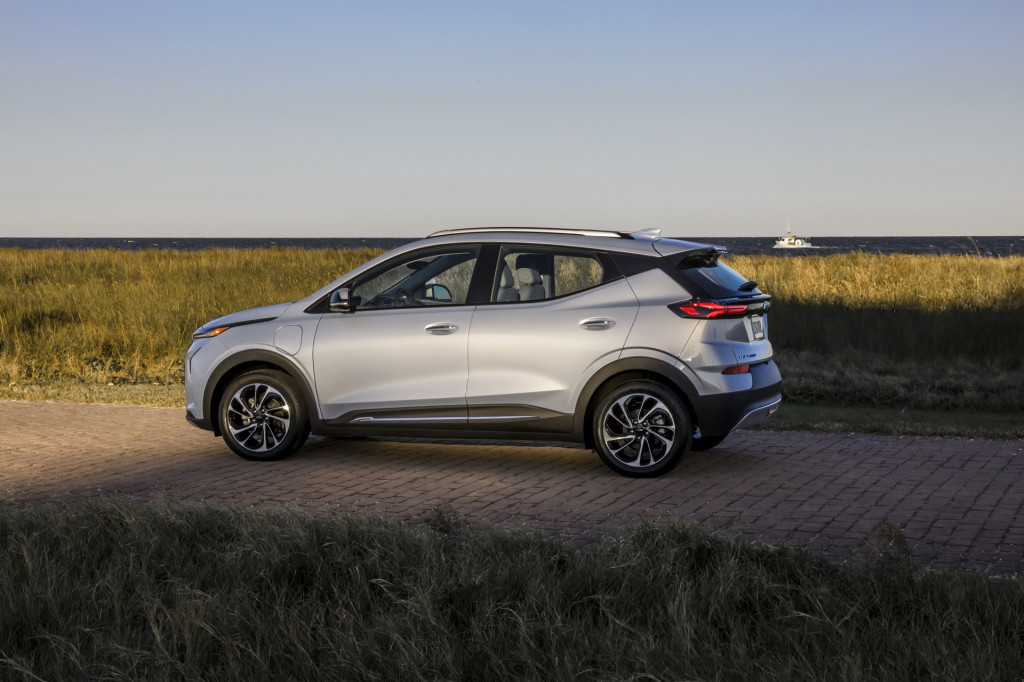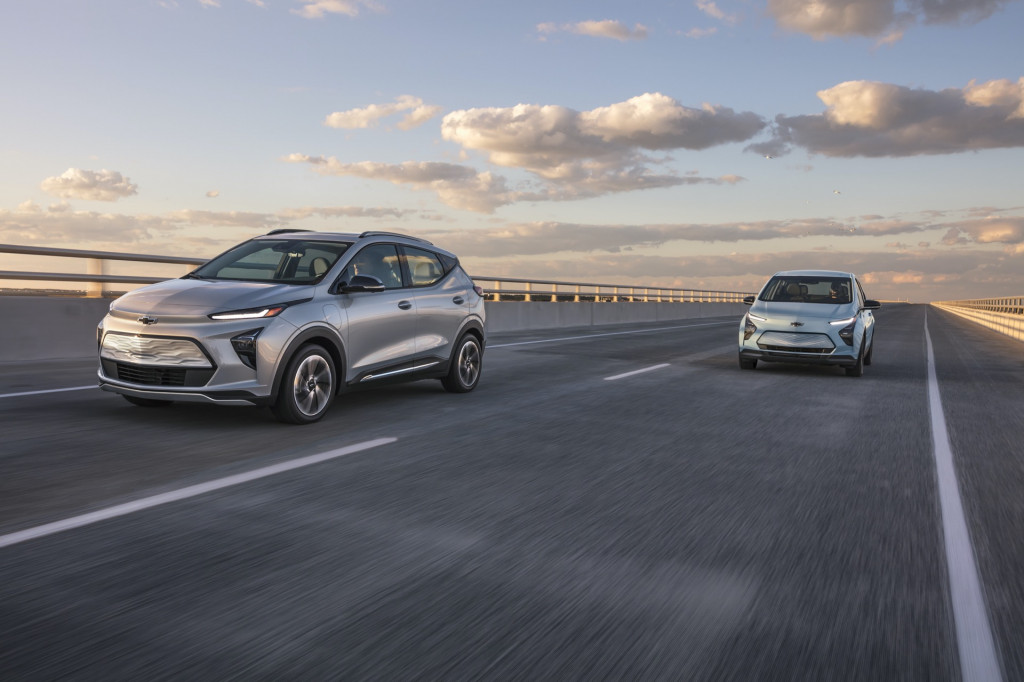2022 Chevy Bolt EV: $5,500 price cut is an affordability play, EV tax credit or not
As GM prepares for the introduction of two very upscale electric vehicles, the GMC Hummer EV and the Cadillac Lyriq, the Bolt lineup plays an important role, it faces one pesky problem.
Although the company has been talking the talk about offering affordable EV models in the near future and pitching EVs with an “Everybody In” campaign, it hasn’t exactly been walking the walk. Especially coming out of a pandemic, the $112,595 Hummer EV Edition 1 or the expected nearly $60,000 price of the Lyriq might seem a little extravagant.
With the reveal of the 2022 Bolt lineup on Sunday, it fixes that grievance with a simple solution: a big price drop of $5,500 at the base level and what Chevy suggested will be more than $5,000 across the lineup.
And frankly, it’s about time. Chevrolet priced the current Bolt EV with the assumption that many (or perhaps most) buyers would be eligible for the $7,500 EV tax credit. A one-year phaseout period ending on March 31, 2020 eliminated the credit for subsequent Bolt EV buyers.
With its new price alignment, the 2022 Chevrolet Bolt EV starts at $31,995—including destination—and the 2022 Chevrolet Bolt EUV, which is about 6 inches longer and somewhat more ruggedly styled, starts at $33,995.
Facing off versus a Leaf… and a Mustang
That’s much more competitive versus the two most widely available electric vehicles that compete in the same price range as the Bolt EV are the Nissan Leaf and the Ford Mustang Mach-E.

2022 Chevrolet Bolt EUV

2021 Nissan Leaf

2021 Ford Mustang Mach-E
The Leaf SV Plus, which compares the most closely to the Bolt EUV’s new feature list and range, costs $41,395 and offers a 215-mile range. The Mach-E starts at $43,995, in its rear-wheel-drive, Standard Range form, offering a 230-mile range. But if you can claim the $7,500 EV tax credit that drops to $33,895 and $36,495 for the Leaf Plus and Mach-E, respectively.
GM assured the media in a recent Q&A that the base models would be widely available. “This is not going to be a bait-and-switch program,” said Steve Majoris, the VP of marketing for Chevrolet.
That said, GM knows it’s at an advantage. The automaker, with Tesla, has already burned through its allocation of 200,000 plug-in vehicles eligible for the EV tax credit. The Biden administration has indicated that it’s likely to seek an expansion of the EV tax credit, with a higher ceiling per manufacturer but a household-income limit. An extension on the table in 2019 and given bipartisan support from Congress ran out of juice in then-President Trump’s Oval Office.
That possibility has been back in the news this month with a bill reintroduced earlier this month (but still in subcommittee). As the earlier killed version, it would drop the amount of the credit to $7,000 and lift the ceiling from 200,000 to 600,000 qualifying vehicles—as well as an income cap and a provision for used EVs.

2022 Chevrolet Bolt EUV
GM gave some hints that it’s hoping the tax credit will return, but it’s certainly not planning on that quite yet.
If the credit were to return in this form, the Bolt EV would start at less than $25,000 for many buyers—and lower yet with state incentives.
“If there are things that can help spur EV adoption…certainly, a new administration, it’s something we’re very actively engaged in,” said Majoros, adding: “An EV future is going to be a commitment that takes everybody and all of us working together, and for right now we’re very pleased with the price point we have and we’re going to make a good run with it.”
Some very enthusiastic owners
Chevrolet notes that it has sold more than 100,000 Bolt EVs globally since 2017, and it notes that about three-quarters of Bolt EV buyers have been new to GM, and that they’re among the brand’s most enthusiastic and vocal. It’s hoping that with the revamped model line’s new body style and emphasis on tech (with GM’s Autopilot-rivaling Super Cruise), it will keep them coming.

2022 Chevrolet Bolt EUV
According to chief engineer Jesse Ortega, GM can flex back and forth between the two body styles as needed—really emphasizing either of them up to 75% of production.
Super Cruise will be optional on the top EUV Premier model, with a Launch Edition version of that model—likely reflecting some modest savings—adds up to $43,495, including a sunroof, an illuminated charge port, and unique wheels.
That’s only about $500 more than a fully loaded 2021 Chevrolet Bolt EV Premier.

